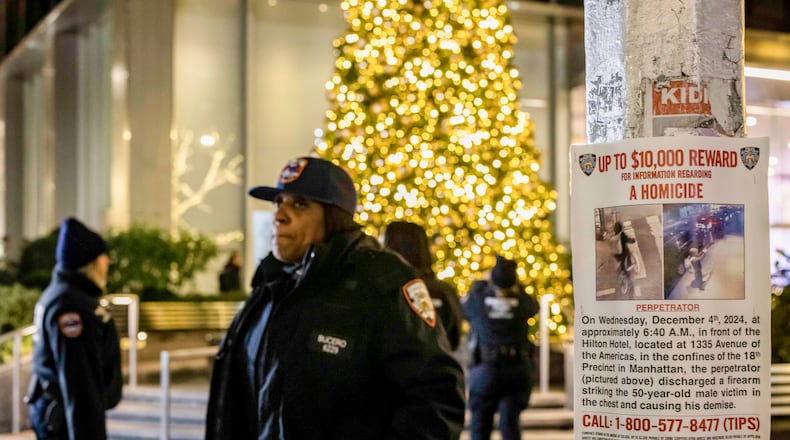“The heinous murder of Brian Thompson was a reminder of the importance of corporate security and personal protection for executives, and it certainly generated a lot of inquiries to security services firms while also leading to many corporate security teams taking action to revisit their strategies and determine what they could learn from that awful attack,” said Geoff Kohl, senior director of marketing at the Security Industry Association.
On Dec. 4, Thompson was gunned down by a masked assailant outside an entrance to the New York Hilton Midtown hotel in Manhattan. Police have accused 26-year-old Luigi Mangione of the homicide.
Health insurers taking precautions
In the time since the shooting, health insurers across the country have removed information about their top executives from company websites, canceled in-person meetings with shareholders and advised all employees to work from home temporarily.
“Most large businesses will already have corporate security teams in place, and the scope of those teams typically include executive protection and travel security for their leaders – in addition to more classic elements like facility security systems, employee access, coordination with cyber/IT teams and general business protection,” Kohl said.
Health care industries are some of the largest employers in the Dayton region, and they say the are committed to employee safety.
“At Kettering Health, the safety of our providers, staff and patients is of the utmost importance,” Kettering Health said in an organizational statement. “We are focused on investing in industry-leading security measures, including addressing workplace violence and collaborating with members of the Greater Dayton Area Hospital Association to continuously improve provider, staff and patient safety.”
“We are committed to ensuring our providers and staff feel protected and empowered by the measures we put in place, and our patients feel safe and secure while receiving the best care from Kettering Health,” the hospital system said.
Downtown risks
CareSource, a Dayton-based health insurance company and Medicaid managed care provider, has offices located in downtown Dayton. The company declined to comment for this story, but references to their top leaders have been removed from its website.
The Dayton Police Department also declined to comment on if there are any concerns about the type of violence that UnitedHealthcare experienced happening in Dayton. The department declined to comment on whether officers have increased monitoring or surveillance around corporate buildings in downtown.
Premier Health, which has corporate offices located in downtown Dayton, also declined to comment on whether it has increased security measures for employees. Though Premier Health is not an insurance company, it is still a large employer in the region with more than 11,000 employees.
Dayton Children’s said it has security measures in place to protect employees and others who come to their locations.
“Ensuring the safety of our staff, patients and visitors is our highest priority,” Dayton Children’s said in an organizational statement. “To support this commitment, we have implemented various safety measures such as distress alarms, weapons detection technology and other proactive security mechanisms.”
For security reasons, the children’s hospital does not share specific details publicly, it said.
Assessing risk
Executive leaders are often reluctant to invest in their own protection, Kohl said.
“Executives don’t want to be perceived as isolated or at risk, but as this murder underscores, the risks that high-profile individuals face are not something you can ignore,” Kohl said.
For companies considering getting or adding to their security measures, the first step is to have a consultant or a security services firm that offers risk consulting conduct an assessment about the situation, he said.
That person or team is going to look at what kind of risk profile the individual has and/or what kind of threats the individual or the company has received, Kohl said. They will look for possible threats or ill-will, such as through monitoring sentiment in public social media posts.
The consultant will also take into account what kind public visibility the individual has, such as any online details about their personal life and locations, and any operational risks, such as where the individual might be the least protected, Kohl said.
After taking those and other factors into consideration, then the consultant or security firm will provide recommendations.
“The first step is really to do that audit to make sure you’re getting the right security services for the situation – not just buying more protection (or less) than what you need,” Kohl said.
The Associated Press contributed to this story.
About the Author

